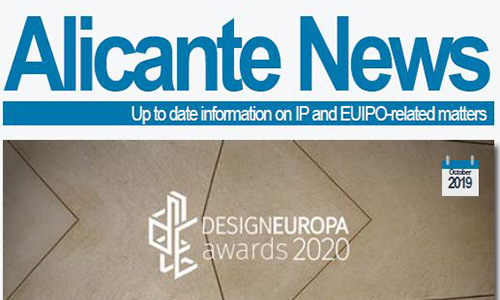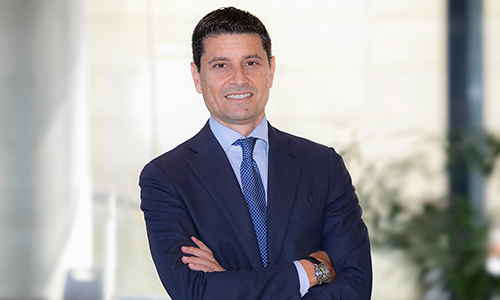- The EIB today presented the results of its latest annual survey on investment in Spain in 2019
- The seminar included discussions on the main determinants and barriers to investment in intangible capital in Spain and how to support these processes
The headquarters of the Banco de España in Madrid today hosted a seminar jointly organised with the European Investment Bank (EIB) and entitled “Digitalisation and Investment in Intangible Capital: the Spanish Case within the European Union.” Banco de España Governor Pablo Hernández de Cos and EIB Vice-President Emma Navarro attended the event, as did speakers from the business world as well as various public and private sector organisations and academic institutions.
The seminar was split into two sessions, the first of which focused on recent developments, determinants and barriers to digitalisation and investment in intangible capital in Spain from an EU standpoint. The second session saw a discussion on ways to support the digitalisation of companies and their investment in intangible capital.
In his speech opening the seminar, Banco de España Governor Pablo Hernández de Cos highlighted official statistics suggesting ample room for improving Spain’s global position in terms of both innovation investment and digitalisation – especially in relation to human capital – with these factors being particularly important for business productivity.
EIB Vice-President Emma Navarro highlighted “the need to invest in digitalisation and intangible capital due to its importance for productivity and long-term growth. Europe cannot fall behind with this investment, which is vital for our future. Although Spain is improving in this regard, it still has a long way to go.” She also emphasised the fact that innovation has been and continues to be among the EIB’s key priorities and pointed out how “in recent years, Spain has been able to make great use of the EU bank’s advantages for innovation financing.”
Investment situation in Spain
At the seminar, the EIB presented its annual report on investment in Spain, produced using the results of the 2019 round of the EIB Group’s annual Investment Survey of 13 500 firms across the European Union. The survey, now in its fourth year, provides information for understanding investment dynamics and needs in EU countries.
The document published today analyses the answers given by almost 600 non-financial Spanish companies, coming to the following main conclusions:
- Over 80% of the Spanish businesses surveyed in 2019 said they had made investments. Investment per employee in Spain continued to rise, although it remains slightly below the European average.
- A third of the Spanish companies surveyed said that they had invested in some form of innovation-related activity, an increase of 25% compared to 2018. Spain has a higher share of innovation leaders than the EU average, particularly in the manufacturing sector.
- Most Spanish businesses said they planned to increase their investment in 2019. Their investment priorities for the next three years are expanding their production capacity, followed by developing new products.
- According to the firms surveyed, uncertainty about the future is the most common barrier to investment, followed closely by regulation of activity and energy costs.
The survey also explores the financing of Spanish companies, providing these reflections:
- Although a lack of access to finance is not a problem for most, innovative businesses and those investing in intangible capital have more difficulties.
- Almost 5% of Spanish firms find it difficult to access finance, which is similar to the EU average and the figure identified in the EIB’s last Investment Survey in 2018.
- Spanish companies are above the EU average with respect to external financing (40%), with banks being their main source.
Investment in the European Union
The seminar also included a presentation on the main conclusions of the EU Investment Report currently being prepared by the EIB using the survey data, and that will be published at the end of the month. These conclusions are as follows:
- Investment spending in the European Union has been rising in line with the economic upturn and is now around 10% above its 2008 level, thanks to substantial corporate investment and receding gaps in public sector and housing investment.
- Investment spending in Europe is still not enough to tackle current challenges, and investment fostering innovation and digitalisation in European companies must be expanded, securing their competitiveness and long-term growth.
- Research, development and innovation (RDI) investment in the European Union is lower than in other advanced economies. Only 13% of European businesses are among those investing the most in innovation worldwide, compared to 34% in the United States and 26% in China.
The study also recommends that the EU strengthen its climate action investment. To reach a low-carbon economy in 2050, the EU must expand its investment in energy infrastructure from 2% to 3% of GDP



